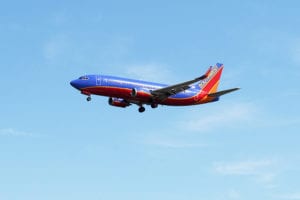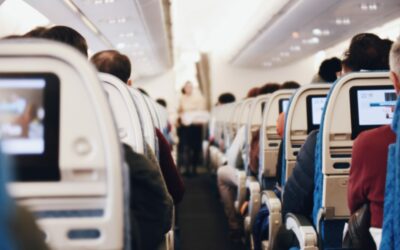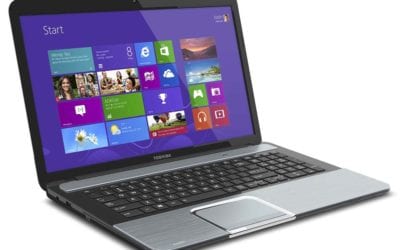Airline wheelchair cheaters claiming that they’re disabled are abusing disabled air travelers. They use wheelchairs and attendants. Sometimes they cause long delays at the airport while others wait for the help they need.
 Earlier this year, I flew to Los Angeles on American Airlines. When I got to the gate I saw ten wheelchairs filled with passengers ready for pre-boarding. I was in the first boarding group and saw the tail end of the pre-boarders get out of their wheelchairs to be seated. None appeared to need any extra assistance to get to their seat.
Earlier this year, I flew to Los Angeles on American Airlines. When I got to the gate I saw ten wheelchairs filled with passengers ready for pre-boarding. I was in the first boarding group and saw the tail end of the pre-boarders get out of their wheelchairs to be seated. None appeared to need any extra assistance to get to their seat.
Upon deplaning, I saw ten wheelchairs waiting with attendants on the jetway. I waited for my wife in front of the lavatory, within eyesight of our flight’s jetway exit. Following the last passenger, I saw a parade of ten wheelchairs exiting the jetway, none carrying a passenger.
Disability grifters scam the airlines, airports and TSA for their own personal benefit at the expense of air travelers who are truly disabled.
American Airlines, Philadelphia International and Los Angeles International airports had been scammed. So were actual disabled air travelers in both airports. The ten passengers on my flight that claimed disability, lied to board early, likely to ensure they had a spot in the overhead bin for their carry-on bags. It’s possible they also lied to get through airport security quickly.
At Southwest Airlines there’s another problem causing air travelers to claim they’re disabled. Southwest doesn’t have assigned seats prior to boarding. Passengers there are lying about having a disability so they can pre-board. They want to be in the first group of passenger boarding to choose a great seat, but not pay for the privilege.
The Air Carrier Access Act prohibits discrimination of disabled air travelers, allowing them to self-declare they are disabled and need to pre-board due to their disabilities.
The Air Carrier Access Act of 1986 (ACAA), as amended, “prohibits discrimination on the basis of disability in air travel.” Under the Act, the U.S. Department of Transportation (DOT) has a rule defining the rights of air travelers and the obligations of airlines under the law.
Under the ACAA, disabled air travelers need only self-declare that they are disabled and that they are requesting to pre-board. The airlines can’t require passengers to prove their disability.
While I believe that the ACAA is correct in requiring the airlines to treat disabled air travelers respectfully, unfortunately it is therefore open to abuse by unscrupulous able-bodied air travelers.
While I personally believe that the ACAA has addressed the issues of disabled air travelers correctly, because air travelers don’t need to provide proof of their disability to claim it, the law is open to abuse by unscrupulous able-bodied air travelers who immorally “game” the air travel system. By cheating, they can get a wheelchair and pre-boarding in order to get through airport security more quickly, obtain a better seat on flights without assigned seating and ensure there’s enough room in the overhead bin of their plane for their carry-ons.
I particularly understand why they want to be sure that the overhead bin has room for their carry-ons. My carry-on holds lots of camera and electronic gear, plus my medications and some emergency supplies. I don’t want to take a chance gate checking it. Of course, I wouldn’t and haven’t stooped as low as those air travelers who fake a disability to board my flight early.
The passengers on the flights with the fake disabled passengers aren’t the only ones they’re treating unfairly. Faking disability causes serious problems for disabled air travelers by stealing this important service from those who actually need it.
The theft of wheelchair services by able-bodied air travel grifters is causing serious delays and problems for those who are actually disabled and need wheelchair services.
The theft of wheelchair services by able-bodied air travelers causes delays, some serious, for those who need wheelchairs. Last year, when a friend of mine flew from Philadelphia to Miami, she had to wait 40 minutes at the gate for the wheelchair that she ordered to arrive. Passengers faking disability to pre-board tie up the airport’s available wheelchairs. She’s lucky that after 40 minutes, her luggage was still at baggage claim.
At CNBC, Frontier Airlines CEO Barry Biffle said that he’s seen some Frontier flights where as many as 20 passengers used wheelchairs at their departure airport, but only three passengers used them at their arrival airport.
The theft of wheelchair services by disability grifters is costly for airlines who unnecessarily need many extra wheelchairs and attendants to ensure that air travelers who are actually disabled can get the services they need at the airport.
Biffle claims that each time a passenger requests a wheelchair, it costs the airline $30-35. I believe it, because even at airport pay scales, we have to remember that every airport wheelchair requires an attendant and that passengers use those wheelchairs for a lengthy period. For example, when the plane arrives, the attendant doesn’t just pick up the passenger and immediately dump them at baggage claim. They might detour at a lavatory. At baggage claim, they have to wait for the baggage to arrive. Then they must take the passenger to their ground transportation. On average, that seems as though it will take more than a half hour every time. At departure, attendants are required for much longer times.
In addition, the airlines and airports need to purchase and maintain many additional wheelchairs and employ additional attendants to handle the disability grifters.
Many have detailed schemes to fix the problem.
Some passengers, who aren’t disabled, want to go back to a time when the airlines required proof of disability and allowed their personnel to interrogate passengers who ordered wheelchairs to be sure they needed them. Others have suggested that air travelers would have to show their state issued handicapped parking placards. Still others would require anyone who used a wheelchair at the departure gate to use one at the arrival gate.
I don’t think any of those ideas are actually workable and some are likely an ACAA violation. Some have also suggested that disabled passengers should board last. That won’t work at all. It’s tough enough to help disabled passengers to their seats in an empty plane. In a full plane it would be beyond difficult.
I have a two part “modest” proposal to mitigate the problem of disability grifters.
While I don’t believe it’s possible to totally stop passengers from disability cheating, especially in the case of Southwest Airlines, I have a two-part “modest proposal” that I believe would dramatically mitigate the problem.
1. For TSA and the airports:
Some of the disability grifters are trying to get through security more quickly, something I wish everyone could do. I propose that the Transportation Security Administration (TSA) and airports across the nation dramatically improve airport security checkpoints. Security checkpoints need more security lines at peak airline check-in times. TSA needs better trained officers and more of them. TSA needs checkpoint equipment designed to more quickly and accurately identify problem carry-ons.
2: For airlines:
Many disability frauds are desperate to avoid gatechecking their carry-ons. Often by the time boarding is a little more than halfway complete, many airlines require passengers to charge for checked luggage. This is typically about $30 for the first bag, more for additional bags. I propose that all the airlines allow the first bag to fly free, as long as it’s not overweight, and raise their ticket price appropriately. That will substantially reduce the carry-on volume, speed up airport security checkpoints, boarding, free overhead bin space, and reduce carry-on gate checking.
Air travelers faking disability to board early is a serious problem for the airlines and airports. It is more so for those air travelers who have real disabilities. The airlines, airports, and TSA need to take the problem seriously. If they adopted my proposal, the problem would be significantly diminished.
(Image: Southwest Airlines B737 landing at Philadelphia International Airport. Copyright © 2018 NSL Photography. All Rights Reserved.)
After many years working in corporate America as a chemical engineer, executive and eventually CFO of a multinational manufacturer, Ned founded a tech consulting company and later restarted NSL Photography, his photography business. Before entering the corporate world, Ned worked as a Public Health Engineer for the Philadelphia Department of Public Health. As a well known corporate, travel and wildlife photographer, Ned travels the world writing about travel and photography, as well as running photography workshops, seminars and photowalks. Visit Ned’s Photography Blog and Galleries.



